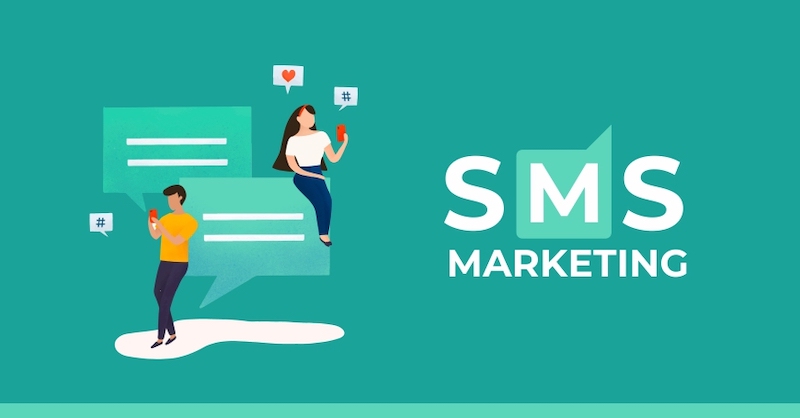SMS Marketing refers to the practice of using text messages (SMS) as a tool to communicate directly with customers or prospects. It’s an effective way for businesses to reach their audience instantly, offering a more personal touch compared to other marketing methods.

Here are some key aspects of SMS marketing:
1. Benefits of SMS Marketing:
- High Open Rates: Text messages typically have an open rate of around 98%, which is much higher than emails or social media posts.
- Instant Communication: SMS is a direct and fast way to reach people. Messages are usually read within minutes.
- Personalization: You can customize SMS messages to target specific segments, improving engagement.
- Wide Reach: Nearly everyone has a mobile phone, making SMS marketing a universally accessible tool.
- Cost-Effective: Compared to other advertising methods (like TV, radio, or digital ads), SMS marketing is relatively inexpensive.
2. Types of SMS Marketing:
- Promotional SMS: Sending deals, offers, discounts, or information about sales to entice customers to take immediate action.
- Transactional SMS: Sending order confirmations, delivery status updates, or appointment reminders.
- Reminder SMS: Reminders for appointments, events, or deadlines.
- Engagement SMS: Requesting feedback or encouraging participation in a survey or contest.
- Subscription Opt-In/Opt-Out Messages: Encouraging customers to subscribe to your SMS list or offering them an easy way to unsubscribe.
3. Best Practices:
- Get Permission: Always obtain explicit consent from customers before sending them marketing messages (opt-in).
- Keep It Short and Clear: SMS has a character limit (160 characters), so keep your message concise and to the point.
- Timing Matters: Send messages at appropriate times. Avoid sending SMS messages late at night or early in the morning.
- Offer Value: Make sure your messages provide real value, whether it’s a discount, important update, or useful information.
- Include a Call to Action (CTA): Tell recipients what action to take next, whether it’s visiting your website, making a purchase, or replying to the message.
- Track Performance: Monitor the success of your campaigns to optimize and improve future ones. You can track open rates, click-through rates, and conversions.
4. SMS Marketing Platforms:
There are various platforms businesses can use to run SMS marketing campaigns, such as:
- Twilio
- SimpleTexting
- Textedly
- EZ Texting
- Moosend
These platforms allow you to automate text messages, segment your audience, and track performance.
5. Compliance and Legal Considerations:
- TCPA Compliance: In the U.S., the Telephone Consumer Protection Act (TCPA) regulates SMS marketing, ensuring businesses obtain written consent from users before sending marketing texts.
- GDPR in the EU: The General Data Protection Regulation (GDPR) in Europe requires businesses to secure explicit consent from consumers before sending SMS communications, and they must also offer an easy way to opt-out.
- CTIA Guidelines: The Cellular Telecommunications and Internet Association (CTIA) provides industry standards for SMS marketing, including best practices for consent and message content.
SMS marketing is an essential tool for businesses looking to engage with customers in a fast and efficient way. By following best practices and ensuring compliance, it can become a highly successful part of your marketing strategy.